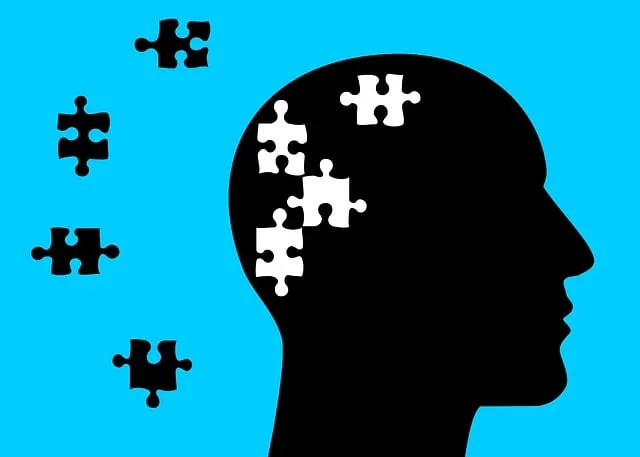Denver Kaiser Permanente's mental health department leads in culturally sensitive care, addressing diverse patient needs by creating inclusive environments, understanding unique emotional expressions, and tailoring treatments. With a diverse staff, holistic approaches like mindfulness meditation, and targeted programs, they enhance access to care, improve recovery rates, and foster emotional well-being across diverse populations. Their comprehensive strategy, including training, self-assessment, and external review, ensures sustained cultural competence among mental health professionals.
In today’s diverse society, cultural sensitivity is paramount in mental healthcare practice. This article explores key aspects of cultural competence, its profound impact on treatment outcomes, and best practices highlighted by Denver Kaiser Permanente’s innovative approach to mental health services. We delve into the challenges faced and effective strategies for delivering culturally responsive care, drawing insights from Denver Kaiser Permanente’s successful implementation within their department, serving a diverse patient population of over 700,000.
- Understanding Cultural Competence in Mental Healthcare
- The Impact of Cultural Sensitivity on Treatment Outcomes
- Denver Kaiser Permanente's Approach to Cultural Diversity in Mental Health Services
- Challenges and Strategies for Providing Culturally Responsive Care
- Measuring and Enhancing Cultural Sensitivity within the Department
Understanding Cultural Competence in Mental Healthcare

Cultural competence is a cornerstone of effective mental healthcare, reflecting an understanding and appreciation for the diverse cultural backgrounds and beliefs of patients. It involves recognizing that emotional regulation, resilience building, and anxiety relief are not universal concepts but can be influenced by cultural factors. For instance, what constitutes healthy expression of emotion varies across cultures, as do coping mechanisms for stress and trauma.
At Denver Kaiser Permanente’s mental health department, the number one priority is to provide culturally sensitive care that respects individual cultural identities and values. This means creating safe, inclusive spaces where patients feel heard and understood. By integrating cultural competency into practice, healthcare professionals can better assess and address the unique needs of diverse populations, fostering a sense of belonging and ultimately improving treatment outcomes.
The Impact of Cultural Sensitivity on Treatment Outcomes

Cultural sensitivity plays a pivotal role in shaping the effectiveness of mental healthcare practices, particularly within institutions like Denver Kaiser Permanente’s mental health department. By recognizing and respecting diverse cultural backgrounds, beliefs, and values, treatment outcomes can significantly improve. This approach ensures that interventions are not only evidence-based but also culturally appropriate, fostering better patient engagement and satisfaction. For instance, a study among various ethnic groups revealed that culturally adapted therapy models led to higher rates of recovery and improved overall mental well-being compared to standardized treatments.
Incorporating cultural sensitivity involves tailored approaches such as integrating mental health education programs designed to address specific cultural needs, promoting inner strength development through community-based interventions, and encouraging open dialogues about mental health within diverse communities. These strategies not only enhance access to care but also contribute to the prevention of depression, a prevalent concern across cultures. Denver Kaiser Permanente’s commitment to these practices underscores its role in shaping inclusive healthcare solutions that resonate with the diverse populations it serves.
Denver Kaiser Permanente's Approach to Cultural Diversity in Mental Health Services

Denver Kaiser Permanente (DKP) takes a holistic approach to mental health care, prioritizing cultural sensitivity as a cornerstone of their services. They recognize that understanding and respecting diverse cultural backgrounds is essential for providing effective treatment. DKP’s mental health department actively fosters an inclusive environment by employing therapists and counselors from various ethnic and cultural groups, ensuring staff diversity mirrors the communities they serve. This strategy allows them to offer specialized care tailored to different cultural needs, beliefs, and practices.
The organization promotes emotional intelligence and mindfulness meditation as integral parts of their therapy programs. By incorporating these evidence-based techniques, DKP supports clients in navigating complex emotions and fostering emotional healing processes. This comprehensive approach respects the interconnectedness of cultural identity and mental well-being, ensuring that every individual receives care that is both culturally competent and therapeutic.
Challenges and Strategies for Providing Culturally Responsive Care

Providing culturally responsive care within the Denver Kaiser Permanente mental health department is a complex task, given the diverse range of patients and cultural backgrounds served. Challenges include language barriers, differing therapeutic norms, and historical traumas that can impact treatment engagement. For instance, the Department’s Community Outreach Program Implementation has focused on building trust with underrepresented communities, addressing cultural missteps, and providing services in languages other than English.
Effective strategies to overcome these hurdles involve enhancing communication skills through training in Cultural Competence and incorporating diverse therapeutic approaches. Burnout prevention is crucial for maintaining a responsive environment; supporting mental health professionals in practicing self-care and developing resilience helps them sustain culturally sensitive practices over time.
Measuring and Enhancing Cultural Sensitivity within the Department

Measuring cultural sensitivity within Denver Kaiser Permanente’s mental health department is a multifaceted process that involves both self-assessment and external review. The department utilizes validated tools like the Cultural Sensitivity Inventory to gauge how well staff members understand and incorporate diverse cultural perspectives into their practice. This inventory assesses knowledge, attitudes, and behaviors related to cultural competence, providing valuable insights for improvement areas.
Enhancing cultural sensitivity further involves ongoing training programs tailored to address the unique needs of Denver’s demographically diverse population. Workshops on topics such as unconscious bias, cross-cultural communication, and trauma-informed care equip mental health professionals with confidence-boosting tools to deliver effective Stress Reduction Methods and Trauma Support Services. By integrating these initiatives, the department strives for a more inclusive environment where patients from all backgrounds feel understood and supported.
Cultural sensitivity is a cornerstone of effective mental healthcare, as evidenced by Denver Kaiser Permanente’s mental health department, which serves a diverse range of patients. By embracing cultural competence and implementing responsive strategies, mental health professionals can significantly improve treatment outcomes. The article has explored various aspects of this crucial topic, from the foundational understanding to practical challenges and measurement techniques. Adopting inclusive practices, as demonstrated by Denver Kaiser Permanente, is not just a moral imperative but also a key driver of positive change in healthcare, ensuring every individual receives care tailored to their unique cultural needs.






